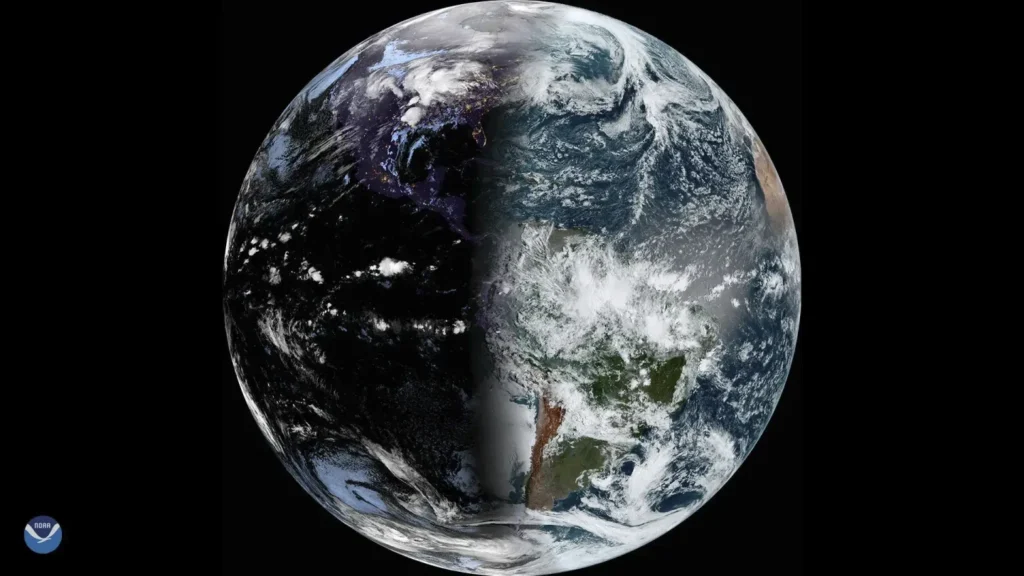Introduction
Spring is officially here! The vernal equinox, which marks the first day of spring, is a fascinating celestial event that occurs every March when day and night are nearly equal in length. In 2025, this astronomical shift brings longer, sunnier days and the gradual warming of temperatures.
But what exactly is the vernal equinox, and why is it important? Let’s dive into the science, traditions, and significance of this seasonal transition.
What Is the Vernal Equinox?
The vernal equinox happens when the Earth’s axis is neither tilted toward nor away from the Sun, causing nearly equal hours of daylight and darkness worldwide.
Key facts about the 2025 vernal equinox:
✅ Date: March 19, 2025
✅ Time: 11:06 PM EDT
✅ Sun’s Position: Directly above the equator
✅ Effect: Equal length of day and night across the globe
After the equinox, the Northern Hemisphere tilts more towards the Sun, leading to longer days, shorter nights, and the official start of spring.
The Science Behind the Change in Seasons
The shift from winter to spring isn’t random—it’s caused by Earth’s orbit around the Sun. The planet’s 23.5-degree axial tilt determines how much sunlight each hemisphere receives throughout the year.
- Spring Equinox (March): Sun crosses the equator northward → Days get longer.
- Summer Solstice (June): Longest day of the year in the Northern Hemisphere.
- Autumn Equinox (September): Sun crosses the equator southward → Days shorten.
- Winter Solstice (December): Shortest day of the year in the Northern Hemisphere.
This natural cycle impacts weather patterns, animal migration, and even human activities.
Spring Equinox Traditions & Cultural Significance
Throughout history, civilizations have celebrated the arrival of spring with festivals, rituals, and cultural traditions. Some notable ones include:
🌸 Nowruz (Persian New Year) – Celebrated in Iran and other regions, symbolizing renewal and prosperity.
🌸 Easter & Passover – Christian and Jewish festivals closely linked to spring’s themes of rebirth and renewal.
🌸 Holi (Festival of Colors, India) – A vibrant Hindu festival celebrating the victory of good over evil.
🌸 Stonehenge Gatherings (UK) – People gather at this ancient site to watch the sunrise on the equinox.
These traditions highlight humanity’s deep connection to nature and seasonal change.
How the Equinox Affects Nature and Daily Life
The arrival of spring impacts both the natural world and human activities:
🌿 Plants & Trees Bloom – Warmer temperatures trigger new growth, blossoming flowers, and greener landscapes.
🦜 Animal Migration & Hibernation Ends – Many species migrate or become more active after winter.
☀️ More Daylight = More Outdoor Activities – People engage in gardening, hiking, sports, and outdoor festivals.
🌍 Impact on Climate & Weather – Spring often brings warmer temperatures, rain showers, and unpredictable weather patterns.
Conclusion
The vernal equinox marks a time of renewal, balance, and change. As winter fades away, the longer, brighter days bring new beginnings, blooming flowers, and increased energy. Whether you celebrate with cultural traditions, outdoor activities, or simply enjoy the warmer weather, spring is a season of transformation and joy.
Happy Spring 2025! 🌷☀️
FAQs About the Vernal Equinox
❓ What happens during the spring equinox?
The Sun crosses the celestial equator, making day and night nearly equal in length worldwide.
❓ Why do day and night become equal on the equinox?
Because of the Earth’s position in orbit, the Sun shines directly over the equator, creating nearly equal daylight and nighttime.
❓ Does the spring equinox always happen on the same day?
No, the date can vary slightly, occurring between March 19 and 21, depending on leap years and Earth’s orbit.
❓ Is the equinox the same worldwide?
Yes, but while the Northern Hemisphere experiences the vernal (spring) equinox, the Southern Hemisphere enters autumn.
❓ How is the equinox different from the solstice?
The equinox has equal day and night, while the solstice marks the longest (summer) and shortest (winter) days of the year.
❓ Can you balance an egg on the equinox?
This is a popular myth, but in reality, you can balance an egg any day of the year with patience and practice!


